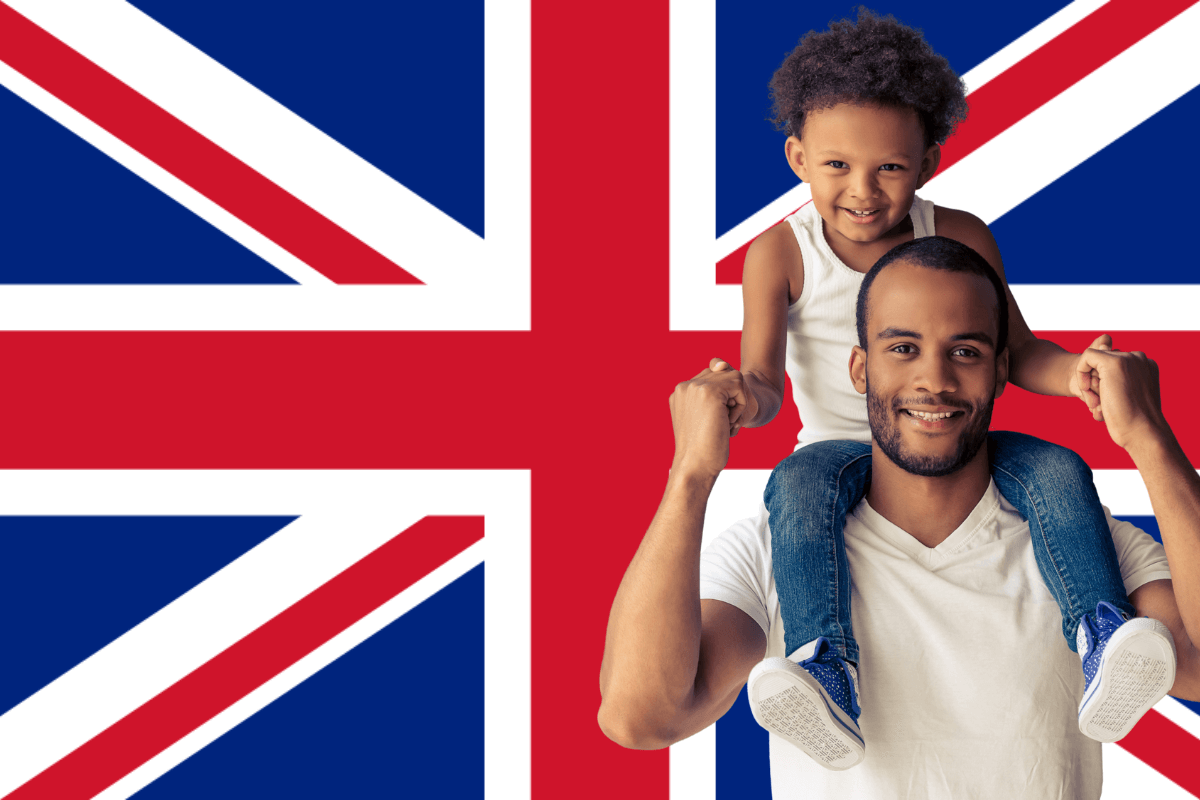Ever noticed how many different names we have for our dads?
It’s not just “father” – oh no, we Brits love mixing it up.
Whether it’s the affectionate “Dad” that takes you back to childhood memories or the playful “Old Man” that makes you smile, each term has its flavor.
It’s like our way of showing love, respect, and a bit of cheekiness all rolled into one.
So, whether you’re a “Pa” person or you prefer calling him “The Old Boy,” let’s dive into the world of British slang for fathers.
Trust me, it’s as diverse and heartwarming as it gets.
Let’s get started!

British Slang For Father
Da

“Da” is a term of endearment for father used widely across the UK and Ireland, embodying a sense of warmth and familiarity.
Historically, “Da” is rooted in the informal and affectionate ways families refer to paternal figures.
Its simplicity makes it a popular choice among children and adults alike, reflecting a close and personal relationship.
The term’s usage varies regionally but remains a staple in depicting the familial bond succinctly and tenderly.
Examples in sentences:
- “I’m going fishing with my da this weekend.”
- “My da has always been my biggest supporter.”
- “Can you tell Da dinner’s ready?”
- “Da, can you help me with my homework?”
- “I bought a gift for Da; it’s his birthday tomorrow.”
Dad

“Dad” is perhaps the most widely used term for a father around the English-speaking world, including Britain.
Its origins are somewhat unclear, but it likely evolved from early child-directed speech, similar to “mama” and “papa.”
The term “dad” conveys a balance of respect and affection, making it suitable for both formal and informal contexts.
Over the years, “dad” has become synonymous with the paternal role, embodying both authority and care in the family dynamic.
Examples in sentences:
- “My dad taught me how to ride a bike.”
- “I’m taking my dad out for lunch on Father’s Day.”
- “Dad, have you seen my keys anywhere?”
- “We’re throwing a surprise party for dad next week.”
- “Dad always knows how to fix everything.”
Daddy

“Daddy” is a term that often evokes a sense of childhood innocence and deep affection.
It is commonly used by young children when referring to their fathers, highlighting a special bond of love and protection.
The term “daddy” dates back several centuries, with its usage as a term of endearment being documented as early as the 16th century.
It captures the nurturing and caring aspects of a father’s role within the family, often continuing into adulthood as a term of affection.
Examples in sentences:
- “Daddy, can you check for monsters under my bed?”
- “I made this drawing for you, Daddy!”
- “Daddy says I can be anything I want when I grow up.”
- “Remember when we used to go to the park with Daddy?”
- “Daddy’s making pancakes for breakfast on Sunday!”
Fatha

“Fatha” is a term steeped in regional identity, offering a glimpse into the dialects of the North East of England.
It’s a variant of “father” that carries with it the warmth and familiarity of local speech.
The use of “fatha” is a testament to the diverse linguistic landscape of the UK, where regional variations enrich the English language.
This term embodies a casual and affectionate way to refer to one’s father, reflecting the close-knit family ties prevalent in these communities.
Examples in sentences:
- “Me fatha’s been working at the shipyard all his life.”
- “I’m off to see the fatha this weekend.”
- “Fatha said he’d teach me how to fish.”
- “Our fatha has the best stories about his youth.”
- “Tell fatha dinner’s ready, will ya?”
Guv’nor (or Guv)

“Guv’nor,” often shortened to “Guv,” is a quintessentially British term that transcends its literal meaning of boss or person in charge to denote respect and affection when referring to one’s father.
The term has its roots in the working-class communities of London, where it was used to address or refer to someone with authority or seniority in a respectful yet affectionate manner.
Over time, “Guv’nor” has become a beloved way to acknowledge a father’s role as the head of the family, blending authority with warmth and familiarity.
Examples in sentences:
- “The Guv’nor’s got the final say on holiday plans.”
- “Ask the Guv if he needs anything from the shop.”
- “Guv’s been fixing cars since he was a lad.”
- “Wait till I tell the Guv about this; he’ll be chuffed.”
- “The Guv taught me everything I know about boxing.”
Old Man

“Old Man” is a widely used slang term across the English-speaking world, including Britain, to refer to one’s father.
It strikes a balance between respect and casual affection, often used by adult children when speaking about their fathers.
The term suggests a sense of familiarity and endearment, yet acknowledges the father’s position of experience and wisdom.
Despite its casual tone, “Old Man” conveys deep respect and a strong familial bond, reflecting the multifaceted nature of father-child relationships.
Examples in sentences:
- “My old man’s got a great sense of humor.”
- “Going fishing with the old man this weekend.”
- “The old man used to be a professional footballer, you know.”
- “I inherited my love for jazz from my old man.”
- “My old man’s advice has always guided me through tough times.”
Pa

“Pa” is a term of endearment that spans generations, offering a cozy and affectionate way to refer to one’s father.
Rooted in simplicity, “Pa” evokes a sense of rustic charm and warmth, often used in both historical and contemporary contexts.
This term underscores the familial bond through its gentle sound and ease of use, making it a favorite among those who prefer a less formal address for their father.
Examples in sentences:
- “Pa, can you teach me how to play chess?”
- “Every summer, Pa would take us camping in the Highlands.”
- “Pa’s stories from his youth are the highlight of family gatherings.”
- “I got this old watch from my Pa; it means the world to me.”
- “Pa always knows how to make us laugh when we’re feeling down.”
Papa

“Papa” is a term that resonates with warmth and affection across cultures, embodying a classic image of fatherhood. It carries with it a sense of tradition and respect, often used by children when lovingly addressing their fathers.
The term “Papa” has historical roots that trace back centuries, yet it remains enduringly popular in modern times, reflecting the timeless nature of the father-child relationship.
Examples in sentences:
- “Papa, will you read me a story tonight?”
- “My Papa used to be a sailor; he’s got tales from all over the world.”
- “Papa’s homemade pizza is the best on the block.”
- “I’m building a treehouse with Papa this weekend.”
- “Whenever I’m in trouble, I know I can always turn to Papa for help.”
Pop

“Pop” is a term of endearment that captures the friendly and approachable side of fatherhood.
It suggests a laid-back and loving relationship between a father and his children, often used to convey affection and respect without the formality of other terms.
“Pop” has a playful sound to it, making it perfect for casual, everyday use. It reflects a modern take on paternal roles, emphasizing companionship and guidance over authority.
Examples in sentences:
- “Hey, Pop, can we go to the game on Sunday?”
- “Pop’s been teaching me how to fix cars.”
- “Every year, Pop and I go on a fishing trip together.”
- “Pop has a joke for every occasion, always keeping us smiling.”
- “I admire Pop not just as my father, but as my friend.”
Pops

“Pops” is a term that exudes warmth and familiarity, often used by children and adults alike to refer to their father affectionately.
It suggests a relationship that’s not just based on respect but also on a deep, personal connection.
The term “Pops” has a retro feel to it, reminiscent of mid-20th-century American culture, yet it has been embraced widely, including in British slang, for its endearing quality.
It’s the kind of nickname that implies stories shared, lessons learned, and a bond that grows stronger with time.
Examples in sentences:
- “Pops is going to teach me how to grill the perfect steak this weekend.”
- “I borrowed this vinyl record from Pops; he has an amazing collection.”
- “Pops always knows how to cheer me up when I’m feeling low.”
- “Can’t wait for the football match with Pops – it’s our tradition.”
- “Pops has the best stories from his youth; they’re absolutely legendary.”
The Old Boy

“The Old Boy” is a British slang term that carries a tone of respect and affection, often used to refer to one’s father with a nod to his seniority and the wisdom that comes with it.
This term is steeped in British tradition, evoking images of a patriarch who’s seen it all and has stories to tell.
“The Old Boy” is not just about age; it’s about acknowledging a father’s journey through life, the challenges he’s faced, and the knowledge he’s gained.
It’s a term that celebrates the enduring strength and guidance fathers provide to their families.
Examples in sentences:
- “The Old Boy still has a few tricks up his sleeve when it comes to fishing.”
- “Going to visit the Old Boy this weekend; he’s got some wisdom to share, no doubt.”
- “The Old Boy’s tales from his days in the navy are absolutely fascinating.”
- “You can always rely on the Old Boy for sound advice.”
- “The Old Boy and I are fixing up an old car together – it’s our project.”
Looking at all these different ways to say ‘father’ in British slang really shows how special the bond is between dads and their kids.
From “Da” to “The Old Boy,” each nickname has its own vibe, showing the many sides of being a dad.
Whether you’re joking around with “Pops” or showing a bit of respect with “Old Man,” these terms are all about the love and laughs families share.
It’s pretty cool how our words can capture the unique mix of friendship, guidance, and love that dads bring into our lives.

